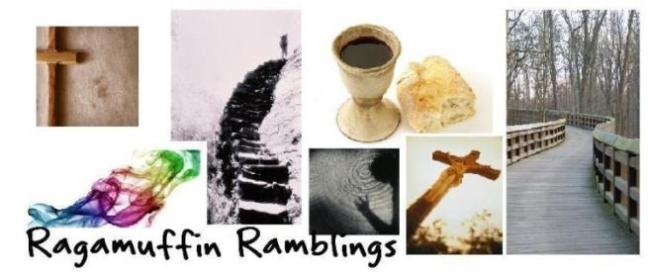And you, Lord - don't you dare forgetIn my Old Testament readings class, I heard this translation of the end of Psalm 137, done several years earlier by a former student. I'd always struggled with Psalm 137 - but my struggles were nothing compared to another one of my fellow students, who all but yelled at the end of the reading, "That is awful! I don't see why we can't just pull those pages out of the Bible and burn them!"
The ones who tore your city down -
You hear me?
They tore it down to its footings
Reduced your temple to rubble
And they laughed.
O Babylon, you Destroyer
I wish I could do it myself
I wish I could pay you back
I wish I could take your babies
And dash their heads against
The stones that you tore down.
(Psalm 137:7-9, a contemporary translation)
I understood that notion then - and I still do. The idea of wanting to slaughter babies - even Babylonian babies - seems obscene, something that doesn't belong in a book of holy writings. But there is a lesson in that expression of anger and hate, one that I found expressed best by Bill Williams in his book, Naked Before God: The Return of a Broken Disciple. These words are Bill's:
There is grace in this passage - not in the text itself, but simply in the presence of the text. After all, think where you find it - the Psalms reside almost exactly in the center of the Bible, at its very heart. And the Psalms tell us a powerful lesson - that the ugliest, most vengeful coals we can harbor in our souls will not throw us out of God's presence. Hear the Good News: bitterness and wrath nearly consumed the psalmists....When I struggle with doubt, or anger and resentment, or fear that the riot of my own emotions can cut me off from being any use to God, I remember this passage and these words about it.
...and God used them anyway.
Those people wrote words which are read and sung in churches week after week. Their words have given courage to millions of souls passing through the doors of death and destruction. One of their writings may be on your lips the day you die.
That's how God punished 'filthy' people filled with nasty human emotions....they helped write the Bible.
And I remember that I am not alone in the family of God - no matter how much the outside appearances of believers on Sunday morning may look much better than how my "insides" feel.
I remember that these struggles are not something which condemns me as a spiritual failure - but something that brands me as a human being, struggling to live a life of faith. It gives me the hope to move forward, to walk through the tough times "by faith and not by sight."
And it reminds me that the same Psalmists who wrote of such horrible violence also wrote of surpassing joy:
Praise the LORD, O my soul;And, finding myself once again renewed, I can only say, "Amen, and ever amen."
all my inmost being, praise his holy name.
Praise the LORD, O my soul,
and forget not all his benefits -
who forgives all your sins
and heals all your diseases,
who redeems your life from the pit
and crowns you with love and compassion,
who satisfies your desires with good things
so that your youth is renewed like the eagle's.
(Psalm 103:1-5, NIV)

3 comments:
Thanks for these last couple of posts - great food for thought, esp about Thomas. I agree with you!
Thanks and God bless,
Jennifer
Your take on this passage strikes me as resonating with what I understand is the basic idea of the gospel of Judas: He wasn't a bad guy, he was helping to carry out God's plan.
For that matter, if it's all part of God's plan, is there any evil that is more than apparent?
and god used them anyway - :)
Post a Comment